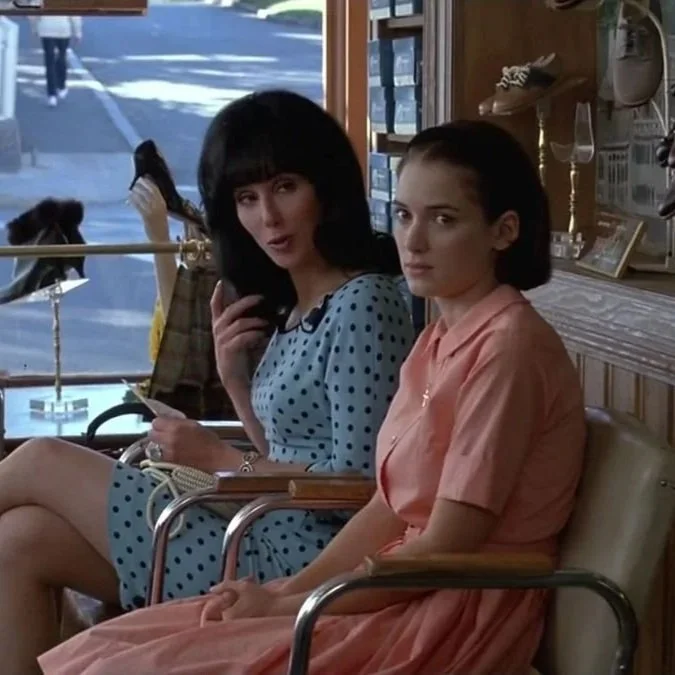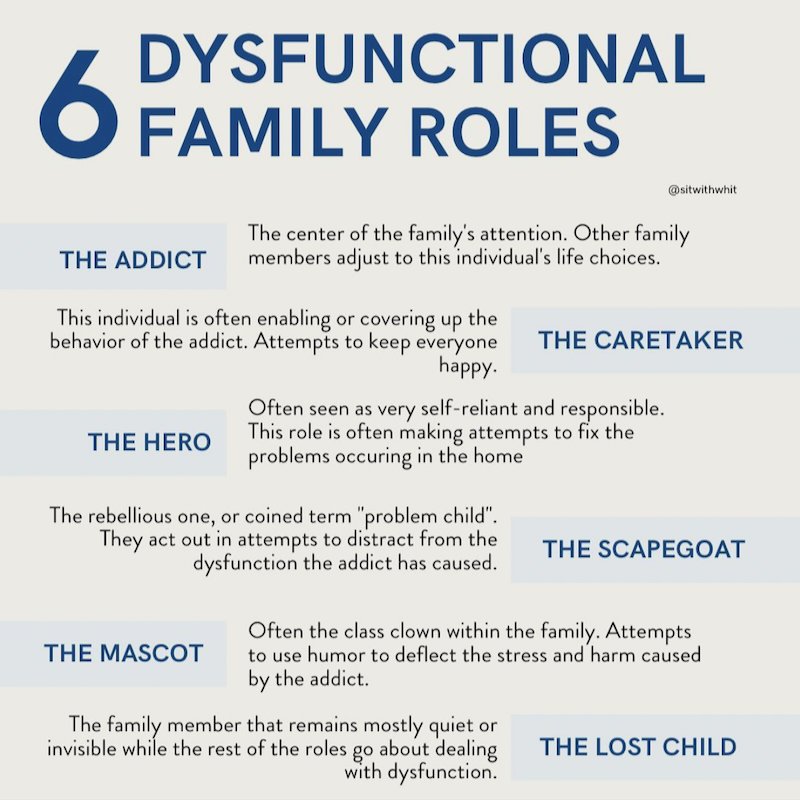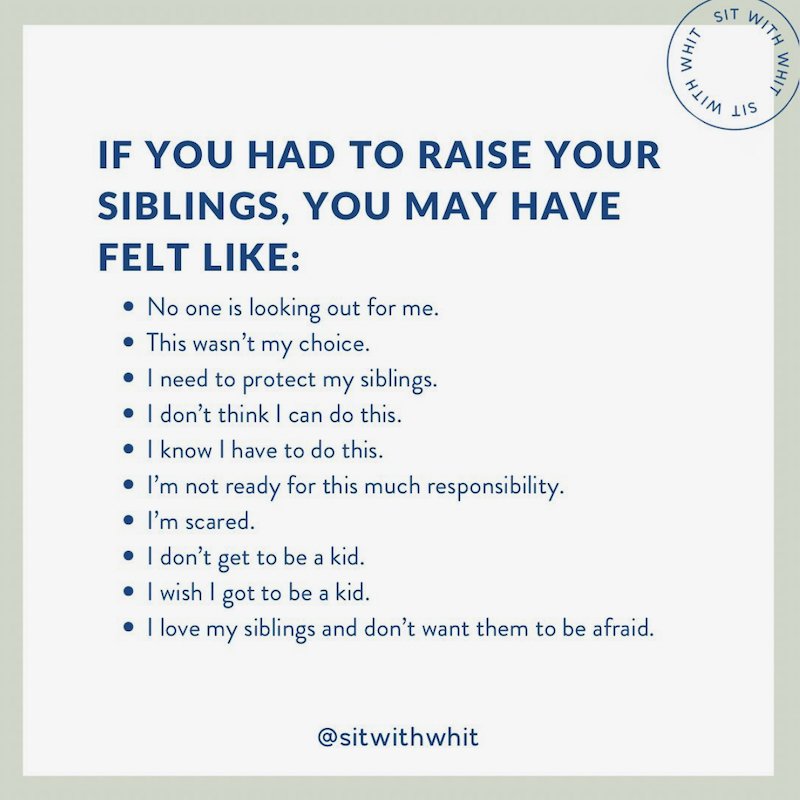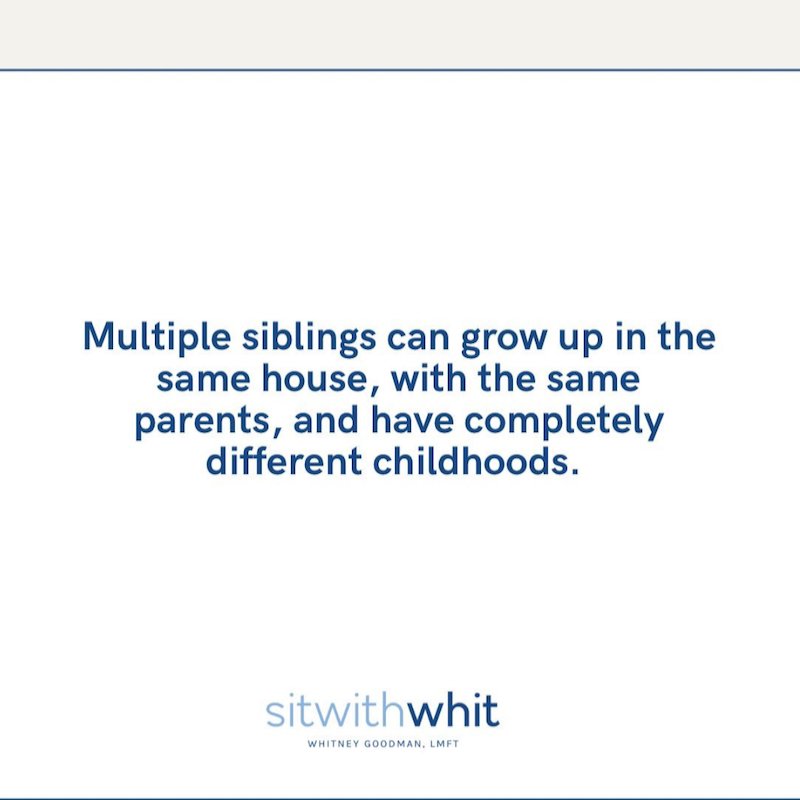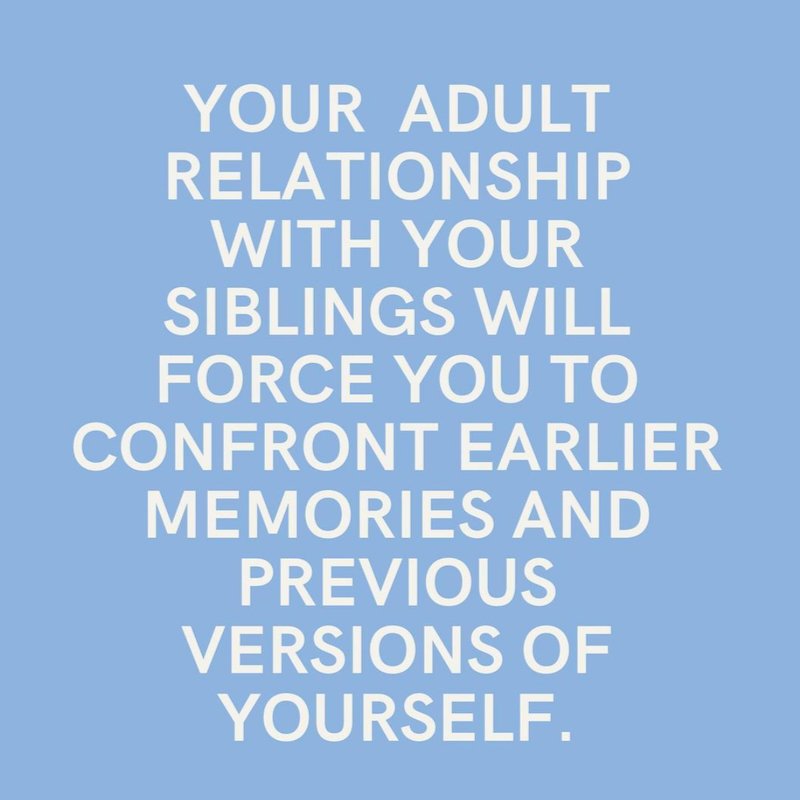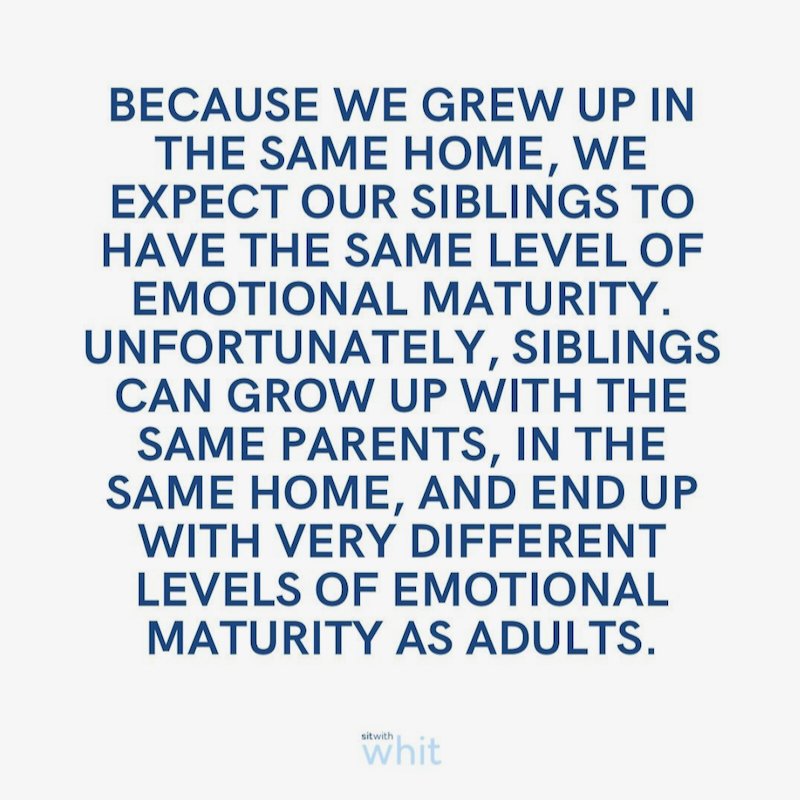Can You Change Your Relationship With Your Sibling?
by Carolyn Firestone
There are really only two questions you can squarely be asked about siblings: “Do you have any?” and “How many?” After that, things get much more… thorny.
And it’s easy to see why. A standard sibling relationship lands somewhere on one of the vastest emotional continuums that can exist in human relationships. On one end, we have the closest friend, the confidante, the kindred spirit in the oldest, deepest, most entangled sense.
On the other end, we have the lifelong nemesis, the essential stranger, or even, the person we most forcibly strive to avoid.
And sometimes things get so enmeshed that we find ourselves feeling both a heavily engrained, almost magnetic camaraderie and a simultaneous disconnect that never seems to know how to repair itself.
According to therapist Whitney Goodman, LMFT, who writes extensively about sibling relationships, there are knowable reasons that things get so strained. And untangling those reasons can be the first step to patching together the sort of relationship we’d like to have with a sibling in our current adult life.
But it’s not the only step. In fact, she shares 7 specific ways we can peel away the past and improve our adult relationships with our siblings.
But first, a bit about what throws them off in the first place…
Parental Treatment
“How siblings relate to one another really comes down to one thing: how each child feels they’re being treated by their parents in relation to their siblings,” said Goodman. Whether the difference is real or imagined, the feelings of disparity within a family can be one of the “biggest predictors of sibling rivalry and competition” in both childhood and adulthood.
In addition to how a parent treats each child individually, there’s the matter of how they oversee and influence the way their children relate to each other. “If sibling relationships are not fostered in childhood and parents do not manage things like sibling rivalry, sibling bullying, or sibling abuse, it’s more likely to become a strained relationship in adulthood,” said Goodman.
Familial Roles
It doesn’t take being audibly called out as “the responsible one” or “the rebel” to know where we stand in our families. The labels that get slapped on us can come from different angles and be written in eight different types of ink: a subtle attitude here, a little joke there, outright insults, or unconscious projections.
Then, of course, there are the natural roles we adopt based on our circumstances. The slack we pick up, caring for a younger sibling. The rules we break, because it’s seemingly the only way to get attention we need. These roles are demanded of us, and yet, it creates all kinds of confusion and resentment between siblings, who are still scrambling to make sense of their own emerging experience and identity.
“Siblings often fight over the roles they were forced to take on within the family,” said Goodman. “As adults, these siblings are likely to get caught up in blaming one another for [these roles]. The “black sheep” of the family becomes resentful of the “hero,” but they were both just doing what they needed to do to cope and survive in the system they were born into. When siblings don’t react in the same way to problems in the family, resentment and blame can surface in adulthood.”
Lack of Understanding Of The Other’s Experience
The distinctions between how each child is treated (or feels they’re being treated) in a family creates two entirely unique perspectives that don’t always overlap.
“You can grow up in the same family as your siblings and have a completely different set of memories, experiences, and beliefs about your childhood,” said Goodman. “The hard part is, your parents and siblings may not agree with your interpretation or memories and that can be painful.”
The myth that we share a single history or a common understanding of that history can be harmful to two people who come from two completely different places in the same family unit.
“If your relationship with your sibling is strained, it may be because you have very little awareness of what it was like for either of you growing up,” said Goodman.
The question becomes, as adults is it really possible (or even beneficial) for siblings to sit down over one box of Oreos and share two very different points of view about something as heavy as their childhood? According to Goodman, the answer is yes, but each person has to be willing to listen, seek understanding, validate and possibly disagree.”
And maybe most importantly, they “have to possess the ability to see a parent in a different way than their siblings,” said Goodman. “These are difficult tasks and they are possible.”
Common Turning Points In Life
In addition to the events of our childhood, Goodman lists these common transitional life events that can be grounds for friction between siblings and can lead to estrangement in adulthood:
Adolescence
Marriage or adding a new partner
Birth of a baby or adding new members to the family
Parental illness, death, or inheritance
Illness
Divorce
Gaining a handle on our past is work we can do on our own, but when it comes to building a healthier relationship with our sibling as an adult, Goodman has these 7 suggestions:
1. Get to know them as the person they are and let go of the childhood version of them.
“Imagine that you just met your sibling today, what would you want to learn about them? Start getting to know them as a new friend,” suggests Goodman who readily acknowledges that this is easier said than done. If you still feel like you need to discuss the past, she shares how to discuss your childhood experiences, here.
2. Make one-on-one time for each other.
“It’s very easy to slip back into old family patterns when you are with your parents or other family members,” said Goodman. “As adults, it’s so important to set aside solo time with siblings to develop your own individual relationship.”
3. Leave your parents and other family members out of it.
“This is another area where siblings can slip back into old patterns or jockeying for a parent’s attention,” said Goodman. “Your adult sibling relationship can stand alone, and it doesn’t always have to include your parent’s or other family members’ influence.”
4. Accept who they are today.
“Having a real relationship with your adult sibling requires accepting who they are today. This means you accept what they can and cannot give you, their choices for their life, and their interests,” said Goodman. “You can absolutely set boundaries and recognize that your sibling is a unique individual that you cannot change.”
5. Figure out what you want the relationship to look like.
“Relationships involve multiple people and it helps if you’re on the same page,” said Goodman.
She suggests asking:
What does closeness look like for each of you?
How do you want the relationship to function?
How much contact is reasonable?
6. Discover shared interests.
“Now that you are living on your own and have your own lives, what bonds you? This might be a shared hobby, being in a similar life stage, movies, etc. Figure out what you like to talk about and what you can bond over,” said Goodman.
7. Set boundaries around what divides you.
“If you can’t seem to agree on a particular topic or things always get heated when you’re discussing X, it might be time to set a boundary around that topic,” advised Goodman. “There is no rule that you have to discuss and agree on everything to have a relationship with a sibling.”
carolyn firestone
Carolyn is a freelance writer and editor. Her favorite thing to do is to write about her favorite things, especially when they have even the slightest chance of making someone else’s something (mood, relationship, travel plans, or toiletry kit) a little better. You can find more of her articles here.
This article is for informational purposes only. It is not intended to be used in place of professional advice, medical treatment, or professional care in any way. This article is not intended to be and should not be a substitute for professional care, advice or treatment. Please consult with your physician or healthcare provider before changing any health regimen. This article is not intended to diagnose, treat, or prevent disease of any kind. Read our Terms & Conditions and Privacy Policy.





